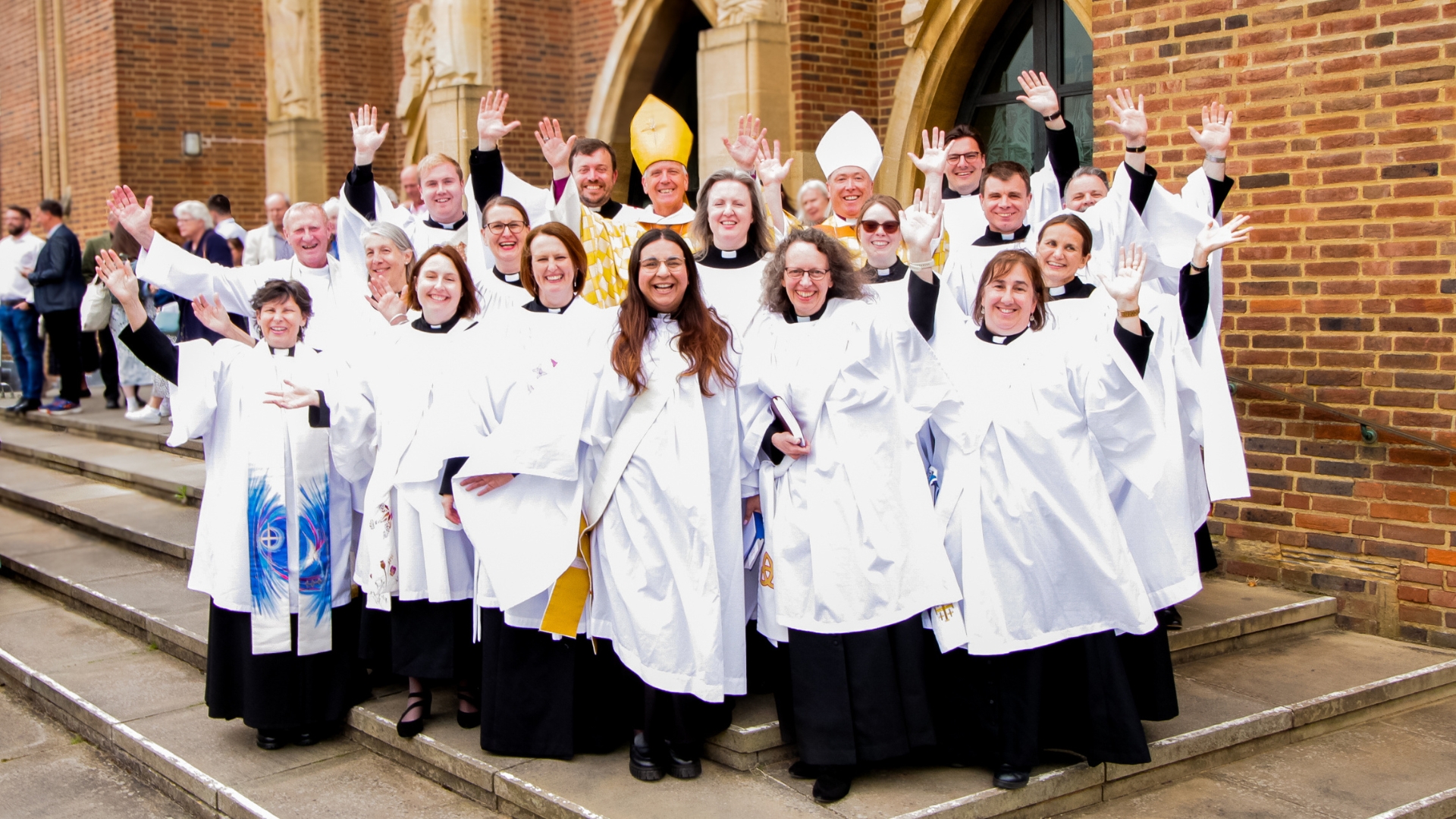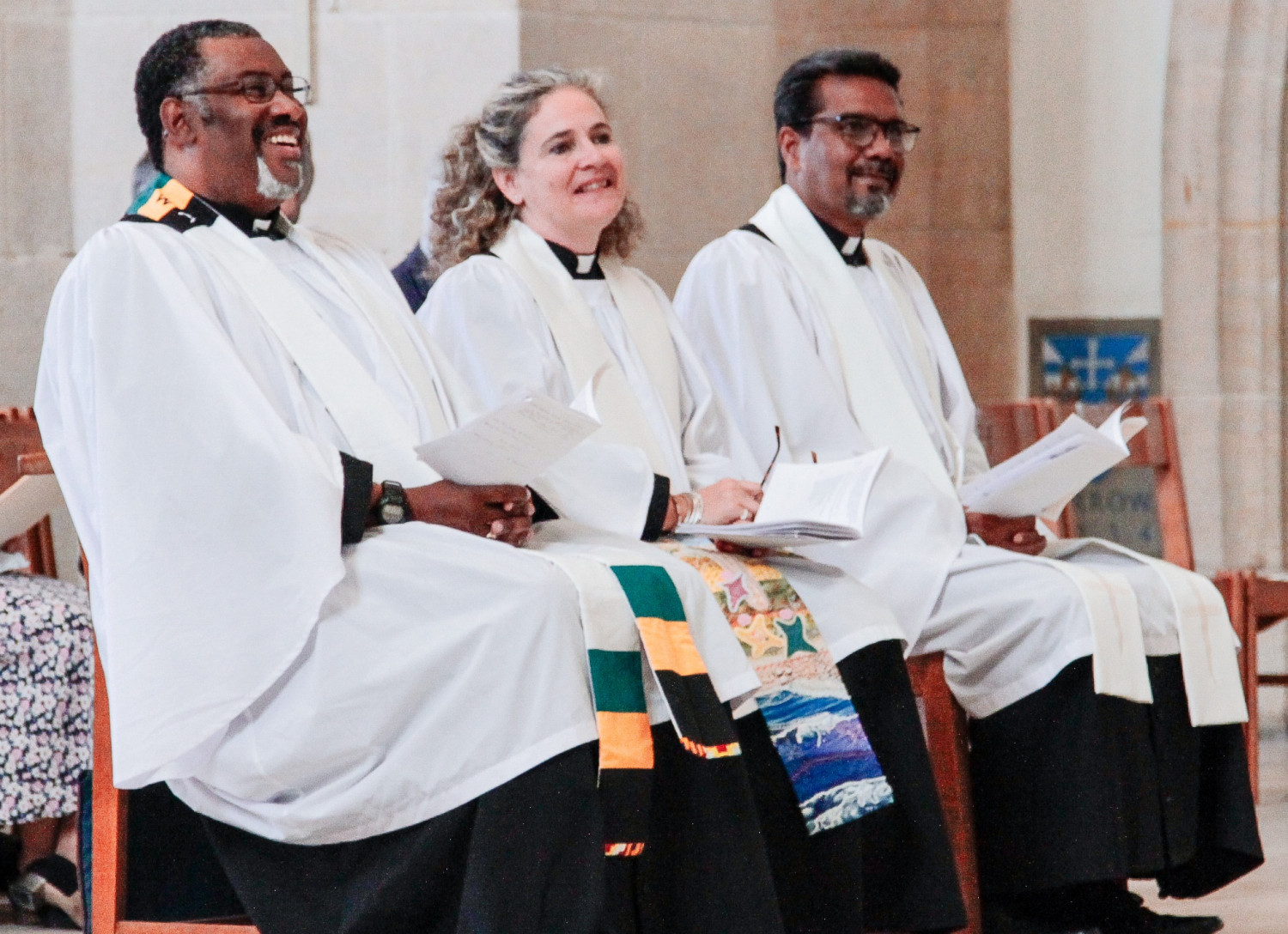 It’s great that you’re exploring a possible call to ordination! We’d love to support you as you take this journey of discernment.
It’s great that you’re exploring a possible call to ordination! We’d love to support you as you take this journey of discernment.
As a starting point, you may like to browse the national Church of England web pages about ordained ministry, which offers lots of helpful information. We’d also recommend a couple of books as helpful reading:
- Steven Cottrell’s On Priesthood: Servants, Shepherds, Messengers, Sentinels and Stewards (2020)
- Graham Tomlin’s The Widening Circle: Priesthood As God's Way Of Blessing The World (2014)
Alongside these books, reading through the ordination service liturgy (often known as the Ordinal) will give you a good insight as to what the Church believes ordained ministry entails. There are similar services both for deacons and priests but with some important differences.
Within Guildford Diocese there are a few steps that you will take you on a pathway to ordination.
The first step is to have a conversation with the priest in charge of your church. They will provide prayerful support and help you reflect on and respond to what God may be saying to you at this time.
If it seems right to move on to the next step, you will be put in touch with the Diocesan Director of Ordinands, (DDO), Craig Holmes. Normally the DDO connect you to a Local Vocations Adviser (LVA) to help you understand the commitment you would be making, and whether you could be well-suited to this ministry.
You may have one or more meetings with the LVA and if it seems right to move forward, they will write a supporting report for the DDO following which you’ll enter into a formal, national discernment process.
Assuming both your own Priest and the LVA are supportive of your exploration of ordained ministry, the DDO (or one of his Assistants) will guide you through the discernment process.
Formal discernment is quite an undertaking. It often takes at least a year (occasionally longer) and involves approximately monthly meetings with the DDO and two national panels. The final panel then makes a recommendation to the Bishop about whether it seems right for you to begin ordination training.
But discernment is also a supportive and formational process – the hope and prayer is that over the course of this year you’ll learn and grow as you explore more of what God has for you.
The conversations are rooted in six Qualities which are explored with candidates in various ways:
• Love for God
• Call to Ministry
• Love for People
• Wisdom
• Fruitfulness
• Potential
The national Church of England website explains more about this.
 Those recommended for training will then explore with their DDO the various pathways and colleges which offer ordination training. This can be either full-time or part-time, residential or context-based, depending on the candidate’s age and the kind of ministry they are offering (primary leadership or assistant ministry).
Those recommended for training will then explore with their DDO the various pathways and colleges which offer ordination training. This can be either full-time or part-time, residential or context-based, depending on the candidate’s age and the kind of ministry they are offering (primary leadership or assistant ministry).
There is more on training pathways on the national Church of England website.
You cannot bear the weight of this calling in your own strength, but only by the grace and power of God. Pray therefore that your heart may daily be enlarged and your understanding of the Scriptures enlightened. Pray earnestly for the gift of the Holy Spirit
Extract from the Ordination service
A few FAQs
There is no automatic age bar to ordination, though candidates for stipendiary ministry would normally be under 50 at the start of training, and those for self-supporting ministry under 60. However these are just guidelines and we’re happy to explore ordination with all those who feel called.
Candidates need to be familiar with the House of Bishops' statement 'Issues in Human Sexuality' which embodies the current expectation for all those training for ordination. You will need to give your agreement to living within these guidelines to proceed through discernment and training.
The document makes clear that all Christians are called to chastity and fidelity and to respect the will of the Church on matters of sexual morality.
In the case of candidates who are remarried or married to a spouse who has previously been married, a Faculty under Canon C4 is required before a candidate may be recommended for training. Please mention this to your DDO as soon as possible, as gaining this Faculty can take quite some time.
There are two categories of sponsorship for ordained ministry – as either Priest or Distinctive Deacon.
Those offering for priestly ministry will also need to consider whether they see their ministry as potentially leading to becoming an Incumbent (i.e. as the primary leader of a church) or as Assistant Ministry (offering a supporting ministry to other clergy colleagues, either in your own or another local parish or worshipping community.
Others may feel called to Ordained Pioneer Ministry, where there is a particular focus on establishing new worshipping communities and supporting the mission of the Church outside the traditional models of parish ministry. Again, please speak to your DDO if that seems of interest.
Ordination Sevices
Join us in praying for and celebrating this year's ordinations. You can find all the details on our Ordinations page.
Further questions
If you have any other questions about vocation or discernment, please either speak to your own priest or contact the DDO who’ll be happy to help.
“And I heard the voice of the Lord saying, “Whom shall I send, and who will go for us?” Then I said, “Here I am! Send me.”
Isaiah 6:8